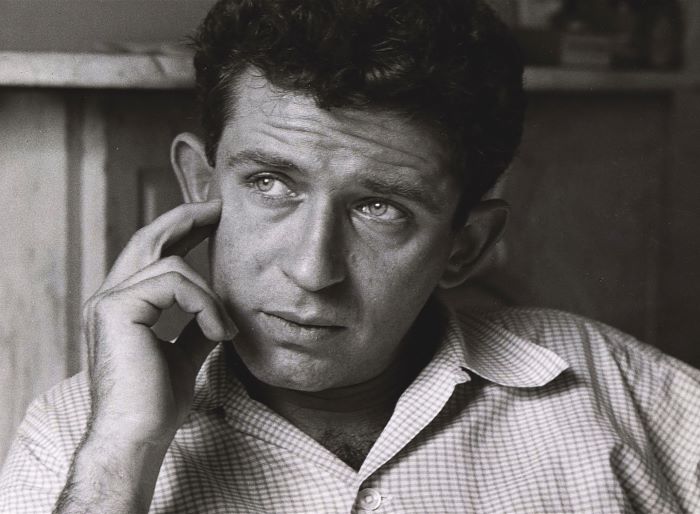Novelist. Journalist. Two-time Pulitzer Prize winner. Co-founder of the Village Voice. Politician. Activist. Filmmaker. Literary brawler. Husband of six wives and father of nine children. Norman Mailer (1923-2007) packed more eventful living into a single lifetime than a dozen men. Indeed, his many accomplishments and controversies offer enough rich material for numerous documentaries.
Joseph Mantegna’s 2010 Norman Mailer: The American offered a fast-paced cradle-to-grave overview of Mailer’s professional career and personal life with an emphasis on the tawdrier details, including footage of Adele Morales Mailer’s startling revelation that she was pressured not to press charges after being stabbed by her husband. Multi-Emmy and Peabody-winning documentarian Jeff Zimbalist takes a different and more sympathetic tack in his cinematic portrait of the legendary author. Inspired by Mailer’s comment that “It’s that nice mixture of love and anger that we need to come alive,” the director explores the writer’s constant battle against conformity, complacency, and dullness, a struggle that shaped his art and his life.
Divided into seven thematic chapters that take their titles from Mailer koans that reflect his life philosophy, How to Come Alive with Norman Mailer mixes archival Mailer interviews with contemporary conversations with friends and critics (Gay Talese, John Waters, James Wolcott, Oliver Stone, Daphne Merkin, Jonathan Lethem) and family members (including his sister Barbara Mailer Wasserman and his children; his youngest son, John Buffalo Mailer, is an executive producer of the film). Editor Alannah Byrnes also skillfully incorporates audio recordings, news footage, and a notorious outtake from Mailer’s 1970 film Maidstone involving the author, actor Rip Torn, and a hammer.
Raised in a primarily Jewish Brooklyn neighborhood by a mother who stressed the importance of the life of the mind, the young Mailer always felt that he was very important. But the rising anti-Semitism in the 1930s challenged him, notes writer Ron Fried. “He was living in two ghettos: the Jewish ghetto and the social ghetto of good manners and not drawing attention to oneself.” “I was too nice a nice Jewish boy, and it held me back,” admits Mailer. For much of his life, as the documentary reveals, the writer fought this tendency toward niceness in his work and in his life. “What makes a good writer is that they have opposites in themselves, and those opposites were certainly in me.”
Mailer’s first encounter with non-Jewish America and his exposure to machismo came in 1944 when he was drafted into the Army. His wartime experiences provided the material for his first novel, The Naked and the Dead (1948). But the new author was unprepared for the book’s success and suffered an identity crisis. Now the center of public attention, Mailer could no longer observe in private.
The documentary vividly traces how Mailer remained at that center of attention for the next six decades through his writing and provocative actions: running for mayor of New York City twice; being arrested three times, including for the attempted murder of his second wife; taunting feminists at a raucous Town Hall meeting; feuding with Gore Vidal on The Dick Cavett Show; and sponsoring an ex-con writer who killed a waiter six weeks after his release from prison. “Mailer learned how to be a symbolic scapegoat,” says journalist David Denby. “He needed to provoke.”
In trying to present a comprehensive picture of the author, the film feels at times overstuffed with excessive detail and at other moments too skimpy. Zimbalist barely mentions Mailer’s gambler father, a fact that is discussed more closely in Mantegna’s documentary. Given his long, complicated life, Mailer deserves a multi-part series in the tradition of Ken Burn’s Hemingway that would examine his literary accomplishments in greater detail. His adventures in writing the groundbreaking Armies of the Night (1968) are worth an individual episode.
Seventeen years after Mailer’s death, what is his legacy? “We no longer talk about ideas but about ideology,” comments filmmaker Rudy Langlais. But Zimbalist’s invigorating documentary urges his audience to reconsider the challenging ideas that drove Mailer and to find inspiration in living more boldly.

















Leave A Comment